‘AITA for refusing to change my daughter’s name cause it hurts my FIL’s wife’s feelings?’
In a story she posted on Reddit on Wednesday and was the subject of an article Thursday by news.com.au, the poster (29F) told of a disagreement between her and her husband and the poster’s father in law (FIL) and his wife, Sharon, because she wanted to name their newborn daughter after her deceased mother-in-law (MIL). Sharon’s relationship with MIL is complicated, as Sharon claims MIL was cruel to her throughout her life — but other family members don’t see it that way. Sharon and FIL then set upon the poster, after they had seen the baby name on social media, accused her and her husband of purposely naming their daughter this name just to annoy Sharon. They asked that a more thoughtful name would be given to the baby, and proposed to even name it after Sharon herself. The poster said no, that her daughter’s name isn’t up for discussion, and that Sharon’s feelings don’t matter in this case.
Read for more info Reddit
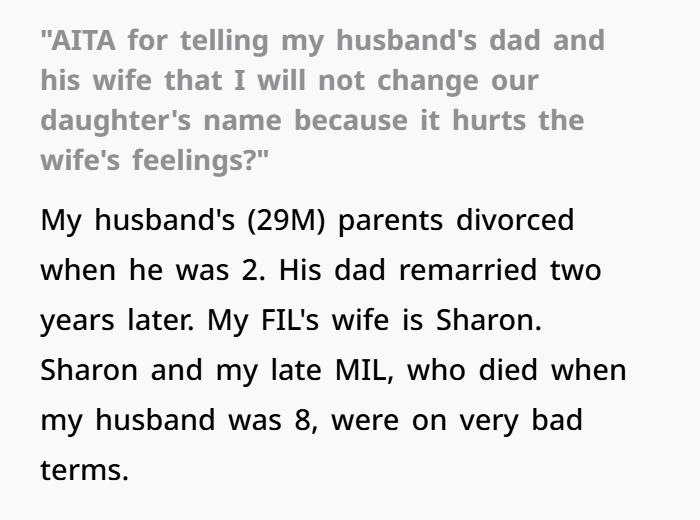
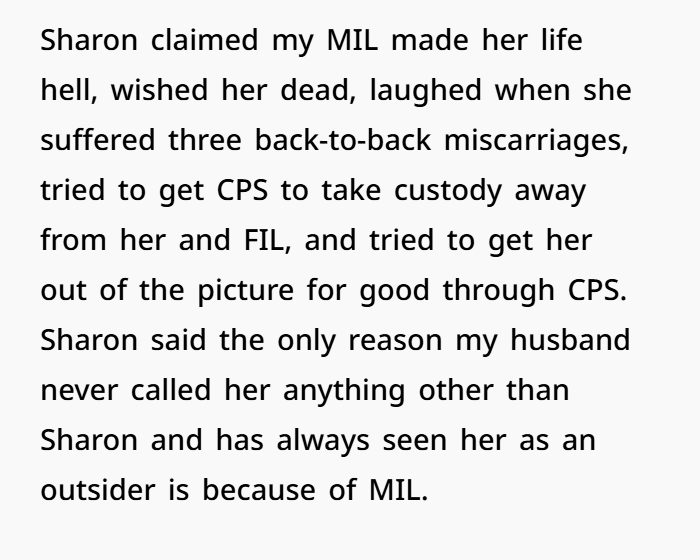
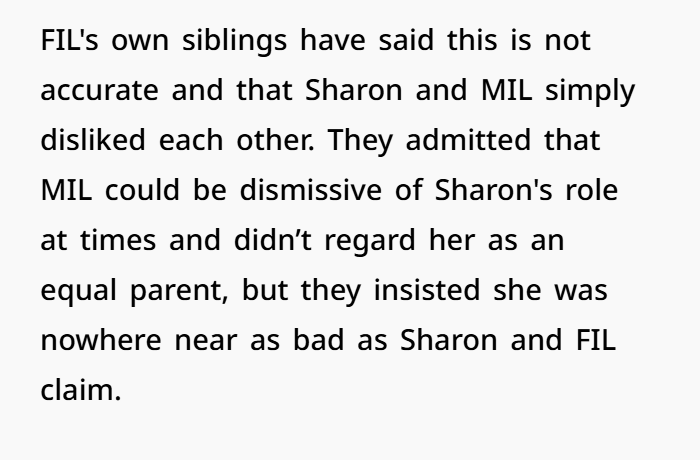

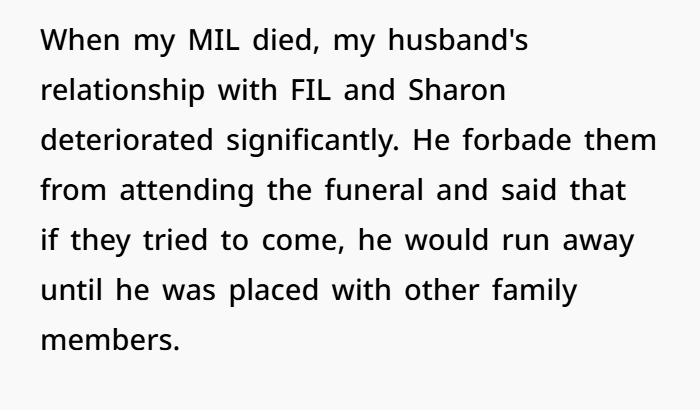
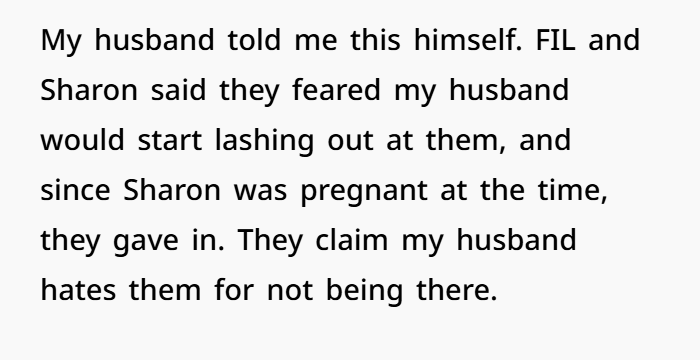


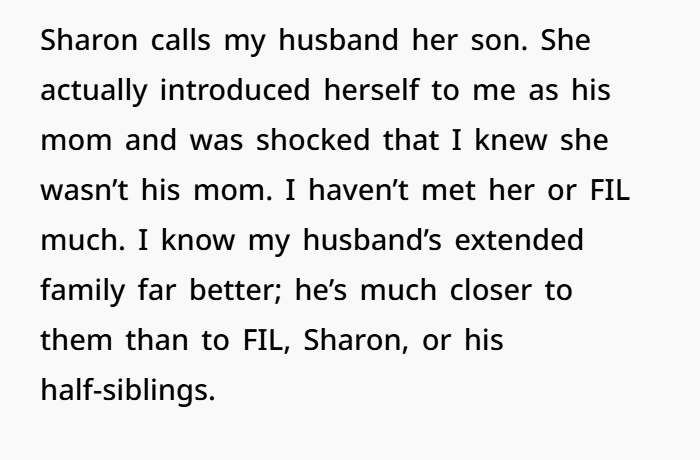
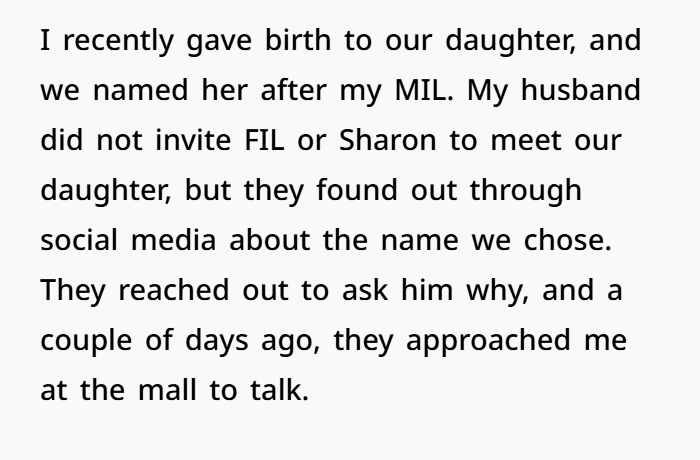
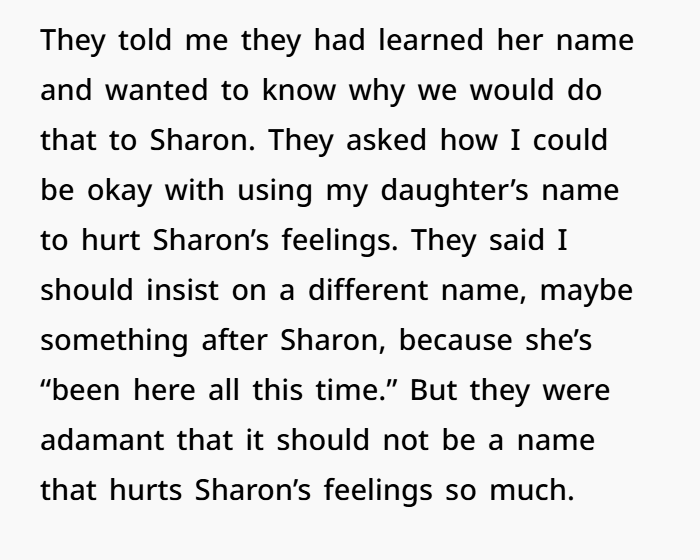
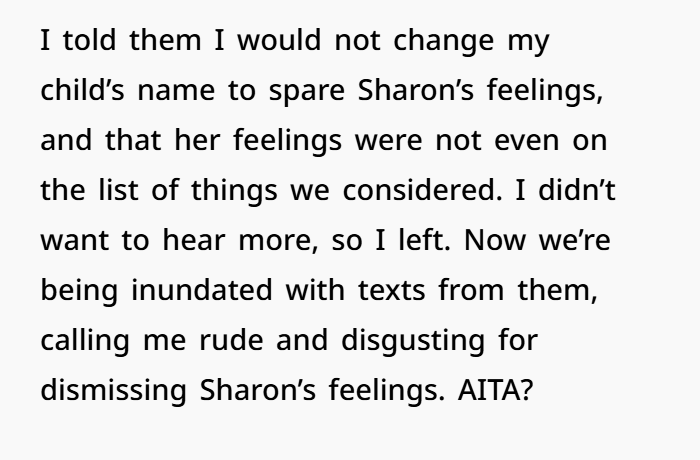
1. Family Dynamics and Grievances
The fractured relationship between the husband and his father, as well as Sharon’s long-standing resentment toward MIL, is the crux of this issue. Sharon’s claims of mistreatment by MIL contrast with the accounts of extended family, who acknowledge tension but deny any extreme animosity. This discrepancy highlights how personal grievances and unresolved conflicts often distort perspectives within blended families. Sharon’s request to rename the baby reflects her need for validation within the family and her ongoing struggle to reconcile her place in her stepson’s life.
2. The Role of Names in Family Legacy
Naming a child after a deceased relative is a deeply personal choice often intended to honor that person’s memory. In this case, the poster and her husband chose the name as a tribute to MIL, whom her husband fondly remembers. Sharon perceives the choice as an intentional slight against her, reflecting her longstanding insecurity within the family. Research on family dynamics shows that naming decisions in blended families can spark conflict, particularly when members feel excluded or overshadowed by past relationships.
3. Legal and Social Boundaries
From a legal standpoint, the parents have exclusive rights to name their child. No outside party, including Sharon and FIL, has any authority to demand a name change. Socially, however, the situation underscores the challenges of maintaining boundaries with difficult family members. Experts in family mediation suggest that clear communication and firm boundaries are critical when dealing with persistent grievances. In this case, the poster’s refusal to entertain Sharon’s demands is a textbook example of boundary enforcement.
4. Relevant Case Studies
Similar situations have played out in online forums and family mediation cases, where individuals face backlash for naming children in ways that upset certain family members. The prevailing consensus in these discussions is that while feelings may be hurt, the decision ultimately belongs to the parents. For example, a Redditor once shared a story about naming their child after a beloved grandparent, despite protests from a step-parent. The advice they received consistently emphasized respecting the parents’ autonomy while minimizing unnecessary conflict.
Here’s what top commenters had to say about this one:


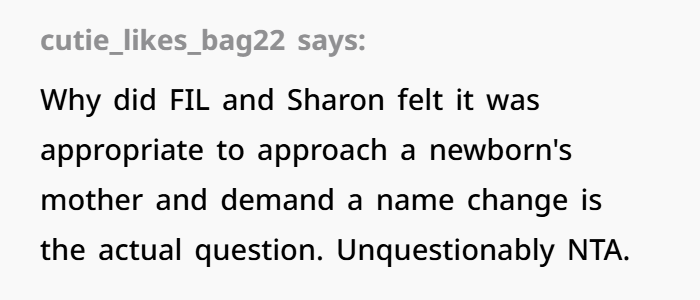

OP is NTA for sticking to her guns on her daughter name. Mil was no saint.. this is part of a long story to which partly explains why the sons have drawn such strong but unhealthy boundaries with fil and sharon, but her late mil was not a saint and had plenty of less than wholesome things to put it nicely in her past (everything from bullying, and jealousy to attempted robbery- all in the name of begrudgingly protecting the family business or her kids- the great and mighty fortress of shocking/abnormal/mil!?)so it was well known that mil was a shady individual with unwholesome goals but presumably planned that family event wont need to be re_replace until such a point that insane behaviour started to happen) yet this decision is also so innately personal to and by her husband, who has such a highly taxing relationship with her fil and sharon. Sharon’s feelings, while understandable—after all, they’re rooted in her unfinished emotional business on her husband’s rejection—don’t trump the couple’s fundamental right to make this intensely private choice for themselves. An extremely reasonable response from a poster who also rightly decided to prioritise their family’s autonomy over Sharon’s request.

